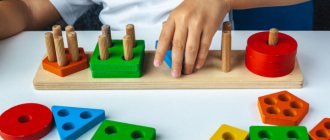To become smarter, you need to develop all types of intelligence at your disposal. But most of us spend our lives exclusively developing our IQ, and this process includes reading, studying, professional growth, and hobbies.
Very few people purposefully develop emotional intelligence, learn to observe people and perceive the emotions of others, and take control of their own emotions. And there are very few who have heard that there are two more types of intelligence, which means additional opportunities to become smarter.
The famous American coach Stephen Covey identifies 4 types of intelligence:
- Physical intelligence (PQ).
- Mental intelligence (IQ).
- Emotional intelligence (EQ).
- Spiritual intelligence (SQ).
Stephen Covey once received an MBA from Harvard and a PhD from Brigham Young Mormon University, and his work in the real economy of Fr. The name of Stephen Covey is included in the list of 25 most influential people in America according to Time magazine. And his book “The 7 Habits of Highly Effective People,” which was translated into many languages around the world, brought him the greatest fame.
In addition to the actual set of skills required to become effective, Stephen Covey points out that each of us has much more opportunities for this than we think. These additional capabilities are precisely the presence of several types of intelligence. Each person develops these types of intelligence to varying degrees, and everyone can further develop any type of intelligence.
To make it clearer what exactly we are talking about, let’s consider in order all the types of intelligence that Stephen Covey identifies.
Physical Intelligence (PQ)
Physical Quotient is a person’s intelligence associated with the physical body, physical attitude, desire for health and beauty, material wealth and comfort. And it is the intelligence of the physical body that activates the human organ systems to ensure survival, healing, development of the physical body necessary to achieve the desired level of well-being and comfort.
A person has the opportunity to develop and apply the physical type of intelligence on an equal basis with any other. A person's tendency to use physical intelligence to solve everyday problems can be determined by his interest in sports, dancing, games, handicrafts - in general, everything that requires physical dexterity. Sometimes physical intelligence is called practical, which fits both into the essence of the definition and into the abbreviation PQ - Practical Quotient.
Physical intelligence is an important basic component of human life, without which its survival and development would be impossible. However, if for some reason only physical intelligence develops, this is not at all enough for the harmonious development of the personality. What distinguishes a person from an animal is mental intelligence, and here, too, some explanations are needed.
Social intelligence
The interpersonal type of intelligence, otherwise called social, gives its owners excellent communication skills. These people are good at understanding others: their emotions, needs, intentions and goals.
They are always in the spotlight, often becoming leaders and the soul of the company.
To develop themselves, people with interpersonal intelligence need to take part in group activities that encourage cooperation, such as team sports.
Career: education, human resources, social sphere, consulting, psychiatry, management, politics, mentoring.
Mental intelligence (IQ)
Intelligence Quotient is the very intelligence that a person normally develops throughout his life: studying, improving in his profession, reading books. When we talk about intelligence as such, we mean precisely mental intelligence. So, mental intelligence is our ability to think, analyze, express our thoughts orally and in writing, create abstract images and other mental constructs.
The importance of mental intelligence is so great that people are constantly trying to measure intelligence as a whole and its components in some quantifiable units. A classic example is an IQ test; more recent examples are UPE tests in various subjects, designed to determine the level of knowledge in individual disciplines and, as a result, the level of intellectual development achieved during study at a secondary educational institution.
True, many experts are increasingly inclined to believe that any tests cannot be considered the ultimate truth, and their results cannot be considered an indicator of the level of knowledge, much less intelligence in general. Any tests have their own specific pattern, and often successfully passing a test only indicates that a person has learned to pass tests. Moreover, this applies to both UPE tests and IQ tests.
As an argument against 100% objectivity of tests, the fact is pointed out that creative individuals - artists, writers, musicians - are often strong only in their field, and their analytical abilities and knowledge of the exact sciences can be noticeably lower than the statistical average. But this does not in any way detract from their merits in creativity and does not allow them to consider their intelligence to be underdeveloped.
Nevertheless, everyone needs to work on further development of intelligence. And even representatives of purely creative professions, with a well-developed outlook, have a greater chance of success than their colleagues who have exclusively highly specialized knowledge. However, there are other equally important components of success. And these, as you already understand, are other types of intelligence that we have not yet considered.
This is interesting
Intelligence has many definitions, each of which attempts to fully reflect the meaning of a given concept. Academician Moiseev defined intelligence as the process of analyzing available resources, on the basis of which a strategy is built to achieve a given task.
Human intelligence has several qualities or components:
- Desire to learn something new (curiosity);
- The ability to sift out the essential from the unimportant (depth of intelligence);
- Ability to use acquired knowledge and experience (agility of mind);
- The ability to find connections, come to various conclusions along a chain of thoughts (logic);
- Ability to argue (evidence);
- The ability to adequately evaluate oneself and the world around us (criticality);
- Ability to evaluate the problem as a whole (breadth of thinking).
Each type of intelligence is based on these properties, the development of which determines the level of intelligence of an individual. Many games aimed at improving intelligence can be found on the Brain.apps website in the “Games for the development of thinking” section.
There is congenital dementia, which implies the presence of an insufficient basic level of intelligence, which a person is not capable of exceeding. Statistics show that approximately a tenth of the planet's population has a mild degree of dementia.
Emotional Intelligence (EQ)
Emotional Quotient is a person’s ability to recognize and correctly interpret the emotions of other people, understand their intentions and motives for actions, as well as understand their own emotions and desires, and be able to manage them. Based on emotional intelligence, competencies such as interpersonal communication skills, teamwork, leadership and many others are developed.
Emotional intelligence has long taken a strong place in the list of so-called soft skills that are subject to mandatory development for everyone who intends to succeed in life. Moreover, the voices of experts from various fields are becoming louder and louder, believing that emotional intelligence should not be underestimated, and that its constituent parameters are more important for success than the IQ level itself, which was customary to focus on previously.
Like other types of intelligence, EQ can and should be developed. At a minimum, you need to learn to take control of your own emotions, try not to allow negative thoughts to take over your consciousness, learn to listen and hear those around you.
By the way, Stephen Covey’s time management matrix helps you put your thoughts and emotions in order: he suggests dividing all your affairs and responsibilities into four categories and planning time for each of them. Then you will have fewer objective reasons for stress and negativity and will have more time for positivity in everyday life. However, maximum calm and awareness are achieved only by those who are able to develop all types of their intelligence, including spiritual.
Determination of the type of intelligence class hour (grade 9) on the topic
QUESTIONNAIRE BY TYPES OF INTELLIGENCE
(structure of intelligence according to Howard Gardner's theory)
Mark the numbers of the statements that correspond to you:
1. I skillfully work with objects.
2. I have a good sense of direction.
3. I have a natural ability to resolve disputes between friends.
4. I can easily remember the words of songs.
5. I can explain topics that are difficult for others to explain.
6. I always do everything in stages.
7. I know myself well and always understand why I act this way and not otherwise.
8. I enjoy community service and community events.
9. I learn well by listening to others.
10. When I listen to music, my mood changes.
11. I like riddles, crosswords, logic problems.
12. Visual presentation of the material is very important for my learning: tables, graphs, diagrams.
13. I am sensitive to the mood and experiences of others.
14. I learn better when I have to do something on my own.
15. Before I learn something, I need to understand that there is something necessary in it.
16. I love solitude and silence while working and thinking.
17. In complex pieces of music, I can identify individual musical instruments by ear.
18. I can visually easily imagine scenes that I remember or that I have imagined.
19. I have a rich vocabulary.
20. I like to take notes and written sketches.
21. I have a good sense of balance and love movement.
22. I can see patterns between concepts and phenomena.
23. In a team, I collaborate with others and listen to their ideas.
24. I am observant and often see things that others do not see.
25. I get angry easily.
26. I like to work and study separately from others.
27. I love composing music.
28. I can handle numbers and solve complex mathematical problems.
Match your answers with the survey key
| Types of intelligence | Questionnaire items | total amount |
| Linguistic | 5, 9, 19, 20 | |
| Mathematical-logical | 6, 11, 22, 28 | |
| Visual-spatial | 2, 12, 18,24 | |
| Musical | 4, 10, 17, 27 | |
| Interpersonal | 3, 8, 13, 23 | |
| Intrapersonal | 7, 15, 16, 26 | |
| Kinesthetic | 1, 14, 21, 25 |
Different Types of Intelligence
| Types of intelligence | Brief type characteristics | Recommended activities exercises |
| 1 | 2 | 3 |
| Linguistic | They love to write, read and listen. They like to tell stories. They remember dates, names and other information well. They have good pronunciation, a rich vocabulary, love to solve crosswords, play “words” | Reports, choral readings, oral responses, role-playing games, etc. |
| Mathematical-logical | They quickly solve arithmetically problems, love to analyze data, and make forecasts. They prefer to play chess and “strategic” games. Quickly recognize cause and effect | Construction of logical chains, construction of graphs. Various kinds of experiments. “Memory cards”, etc. |
| Intrapersonal | They prefer their inner world. Show a sense of independence. Prefer to be alone, doing hobbies or work | Independent work according to instructions, requiring time to think, etc. |
| Visual-spatial | Thinks in images and “pictures”. Loves to draw, paint, sculpt. Reads maps and diagrams well. Likes to watch everything in motion, as well as look at slides and photographs | Drawing diagrams, maps, compiling tables. Coloring books, “completed drawings”, unfinished sentences, etc. |
| 1 | 2 | 3 |
| Musical | Sensitive to a variety of sounds in their environment. They love to play musical instruments and remember melodies well. They love to do something to the accompaniment of music. They have a good sense of rhythm. | Singing, choral reading. Movement exercises, etc. |
| Kinesthetic | They learn best by moving, touching and manipulating objects. They fidget, stand up, spin around when sitting. When talking to people they like to touch them. Skillful handicraftsmen. | Role-playing games, motor exercises, sports. Modeling, dancing, etc. |
| Interpersonal | They always love to be around people. They have many friends. Good organizers, and sometimes manipulators. They learn best by being involved with others. They act as mediators during discussions and disputes. As a rule, they understand other people's feelings well. | Role-playing games, debates, discussions, work in small groups, work as an examiner, interviewing, participation in theatrical productions, etc. |
Diagnostic results
| Types of intelligence | Questionnaire items | total amount |
| Linguistic | 5, 9, 19, 20 | |
| Mathematical-logical | 6, 11, 22, 28 | |
| Visual-spatial | 2, 12, 18,24 | |
| Musical | 4, 10, 17, 27 | |
| Interpersonal | 3, 8, 13, 23 | |
| Intrapersonal | 7, 15, 16, 26 | |
| Kinesthetic | 1, 14, 21, 25 |
Brief characteristics of the leading types
______________________________________________________________________________________________________________________________________________________________________________________________________________________________
Spiritual Intelligence (SQ)
Spiritual Quotient is the highest of all types of human intelligence. It is spiritual intelligence that makes a person a person capable of setting life goals, searching for and finding his life mission, and comparing his actions with life values. If all higher mammals, along with humans, possess emotional intelligence, then spiritual intelligence is the prerogative of humans exclusively.
Just in development of the topic of spiritual intelligence, Stephen Covey’s next book about the so-called “Eighth Habit” appeared. As you probably guessed from the title, this book became a kind of continuation of the world-famous bestseller “The 7 Habits of Highly Effective People.”
Stephen Covey's eighth skill is the ability to find your voice and inspire others to find their voices. “Finding your voice” according to Covey is the ability to choose your life path, which does not necessarily coincide, but rather does not coincide at all with the average experience of hundreds of thousands of people. This is the ability to make your own choice in any situation. In essence, one’s voice is the “Path to Greatness” when a person lives life with meaning and awareness of its meaning. Of course, such an approach is impossible without spiritual intelligence.
In many ways, another book by Stephen Covey, “Focus on the Main Things,” echoes these ideas. Live, love, learn and leave a legacy.” Spiritual intelligence involves the ability to look back at your life and find the top few things to do first. Stephen Covey, as we see, offers his list of such “main things”:
- Live.
- Be in love.
- Study.
- Leave a legacy.
Your personal list may look a little different, but the point is the same: you should focus on the main things in your life. Also, you should not allow secondary vanity to occupy the main place and main time of your life.
This does not mean at all that a person should not or will not have to engage in routine. You will have to, however, this process can be streamlined by allocating your time to everything. By the way, the previously mentioned time management matrix can also help with this.
So now you have another answer to the question “How to become smarter?” and specific tips in which direction to develop. It is not at all difficult to determine which types of intelligence you currently have to a greater extent, and what should be given more attention. All that’s left to do is start taking action.
And, by the way, our “Cognitive Science” course, aimed at developing thinking, can help you with this. In a couple of months, you will be able to master more than two dozen effective thinking techniques that will allow you to find solutions to the most complex and non-standard problems, achieve great success and make your life better.
We wish you success and look forward to attending our programs!
We also recommend reading:
- Storytelling
- General Intelligence Factor
- Valentine's card from 4brain
- Signs of Low Emotional Intelligence
- Cattell-Horn-Carroll theory
- Deep Learning: What is the essence of the deep learning method?
- Things that help you become smarter
- Covey's "Eighth Habit": summary
- What You May Not Know About Intelligence
- Gardner's Theory of Multiple Intelligences
- Intelligence and its development: several recommendations
Key words: 1Cognitive science, 1Self-knowledge
Types of intelligence in psychology
Human intelligence is the ability/ability to use imagination, thinking, innate and acquired skills and memory to implement one’s plans and carry out current activities. In fact, a person can be a genius in a scientific field without knowing how to communicate, draw, or connect with other people.
In psychology, intelligence is classified into 10 basic types.
Spatial type
People with spatial reasoning ability are able to visually estimate the distance from one target to another with amazing accuracy.
They easily navigate unfamiliar places and easily create various three-dimensional figures in their imagination.
People who choose the profession of an architect, truck driver, hockey player, etc. are endowed with spatial intelligence.
Social type
This type of intelligence implies the presence of oratorical abilities, the ability to communicate with people, empathize with them, quickly find friends and like-minded people, etc.
People with a social mindset are given trust by their interlocutors (sometimes undeserved), forgive more, listen to his speeches attentively and do not interrupt his monologues.
Social type intelligence is well developed among politicians, speakers, TV presenters, etc.
Mathematical type
These people freely solve complex trigonometric and mathematical problems, operate with digital and logical data, perform complex calculations, etc.
Often such people cannot communicate freely or establish contacts with people.
Those who love the exact sciences, as well as detectives, are endowed with mathematical intelligence.
Personality type
A person with developed personal thinking copes well with self-realization and self-knowledge, has a positive relationship with himself, and is able to adequately and fully assess his capabilities.
He understands his feelings, emotions and thoughts well.
People with this type of intelligence most often become psychologists.
Physical type
Well-developed physical intelligence allows a person to skillfully control his body and use its physical abilities in the right direction.
This type of intelligence is inherent in athletes.
Spiritual type
People with a spiritual type of intelligence are endowed with empathy and compassion, they are accustomed to respecting the interests of other members of society and caring for them.
A person with a dominant spiritual intellect rarely thinks about his desires; the concept of selfishness is alien to him.
In most cases, such people work as social or medical workers, or engage in volunteer activities.
Sexy type
A person with developed sexual intelligence gets along well with the opposite sex.
Such people know how to please their interlocutor and make him interested.
Sexual intelligence is rarely dominant, but if it is sufficiently developed, then a person is most often happy in his marriage.
Sensual type
Such people know how to organically use all senses.
To work successfully in the chosen industry, a person must constantly develop his senses; only regular training will help him become a real pro in his field.
Sensual intelligence is necessary for a cook, musician, artist, perfumer, etc.
Creative type
Creative people are always original, they are able to create something new and consider issues that interest them from a variety of points of view. They are often unpredictable.
The thought processes of a person with a creative type of intelligence are more often associative and unusual for other people.
Creative thinking is suitable for choosing such professions: singer, artist, actor, cook, etc.
Speech type
People with developed verbal intelligence have a large vocabulary, they can easily construct the most complex sentences and express their thoughts in understandable language.
They are able to grasp connections between concepts and words; learning foreign languages is easy for them.
Speech intelligence is inherent in linguists, translators, announcers, presenters, etc.
Personal (internal)
The owner of this type of thinking easily understands himself, his emotions, thoughts. Always has his own opinion regarding this or that theory. He easily plans his own life, thinks through all the situations that are possible and will somehow affect his existence.
He never does something without thinking, he always soberly evaluates his own thoughts, evaluates his desires and capabilities. He plans his every step, sets a budget, and strictly follows the rules. Intrapersonal intelligence is quite emotional and shy, which can interfere with contact with other people.
Suitable professions:
- psychologist;
- Social worker;
- leading;
- teacher.
In conclusion, it is worth noting that each person has several types of intelligence. To make the most of your abilities, you need to develop several dominant abilities. By focusing on key intellectual abilities, you can easily achieve success.









